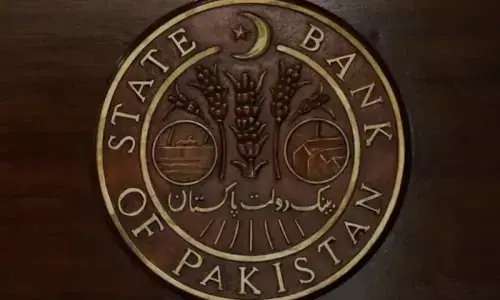KARACHI is the most developed economic and social administrative entity (district/ division) in Pakistan. In almost every single category of economic and social indicators, it tops the list of Pakistan’s districts. Although in a few cases, some districts may have a better social or economic profile, there is no ambiguity about the fact that Karachi is the most advanced, most economically productive and has the best social indicators in Pakistan.
In terms of literacy in Pakistan, a key indicator for economic development, human development and for advancement in the information age, based on the 1998 census, Karachi has the second highest literacy ratio in Pakistan after Islamabad (72.4 per cent) with 72.2 per cent, followed by Rawalpindi (70.4 per cent). However, Karachi Central has the highest literacy ratio in Pakistan, at 76 per cent. Moreover, in the case of female literacy, Karachi Division has a much higher literacy rate than any other division in Pakistan (63.94 per cent), with Karachi Central having a literacy ratio of 73.9 per cent and Karachi East 70.1 per cent.
In fact, Karachi South has the third highest female literacy ratio in Pakistan (62.7 per cent). Female literacy is one of the most important components of the Human Development Index and acts as an input in the quality of life of its people. Karachi has a huge advantage over the rest of Pakistan in this critical category. It is very likely that over the 14 years since the 1998 census, these numbers for Karachi have improved even further.
In academic research which ranks all the districts of Pakistan based on a composite Human Development Index (HDI) composed of literacy rates, enrolment rates, the immunisation ratio, infant survival rates, and the real GDP per capita, Karachi had the fifth highest HDI rank from 91 districts for which this calculation has been made. It is worth pointing out that with the methodology applied to calculate the HDI rank, there were some districts which had a very sparse population but did better than Karachi, such as Jhelum, Ziarat, Haripur and Sheikhupura. Karachi ranks at the top in almost every econometric district-ranking exercise. It is not surprising that Karachi dominates much of the revenue collection statistics of Pakistan. Much of Pakistan’s economic, manufacturing, services and other related production and value addition activity still takes place in Karachi. Hence, Karachi dominates this figure and contributes more than 35 per cent of all Pakistan’s taxes.
However, despite this phenomenal literacy, economic and human development, and revenue base, it is Lahore which dominates Pakistan’s intellectual map, especially for higher education in the social sciences, particularly economics. Karachi does not have a single decent institute, or school or centre for economics teaching or research, while Lahore has at least half a dozen.
It is not just LUMS which speaks for Lahore’s outstanding economics and social science output, but over the years, the Lahore School of Economics, Beaconhouse National University, Government College University, FC College University, and many others including Punjab University and Kinnaird College, have all become centres of learning and excellence.
Moreover, within many of these academic institutions, are numerous semi-autonomous research centres such as the Institute of Public Policy, the Development Policy Research Centre and the Centre for Public Policy and Governance which, unlike many of the NGO-type research institutes, and so-called ‘think tanks’ in Islamabad, are all located within universities, which makes a huge difference.
Karachi does not have even a single school of economics or an economic research centre which comes anywhere close. It had a tradition of economic research in the 1980s and 1990s, but many of Karachi’s economists have now moved to Lahore denuding Karachi of its economists’ constituency.
Today, one is lucky to count even five competent academic economists in a city of 18 million, since most have become mere report-writers for donor organisations. Clearly, something has very seriously gone wrong and this is a sign of the city’s complete failure to use all its human, economic and financial resources to develop intellectual capital.
The reasons for Karachi’s failure are fairly obvious to those who live in the city, and it is not difficult to explain why academics (and others as well) prefer to live away from the city. There is clearly a push factor.
While Lahore may have grown at Karachi’s expense, there are also other reasons historical, indigenous and specific to Lahore. Lahore has been a major seat of learning in South Asia for more than a century and proudly carries on that tradition. More recently, in the 1960s and 1970s, with the rise of a Punjabi middle class, many individuals became academics, especially economists, and went for higher studies abroad.
For decades they worked in international financial institutions, but have now returned, en masse, post-retirement, and have taken up teaching and research positions at the new institutions across the city. They bring in a huge amount of experience and a wealth of intellectual capital.
If one were to single out the one institution which has changed the supply of academics to and from Lahore, it must be LUMS which has produced many academics, some of whom maintain links with the university after their studies. LUMS may have led the way for other institutions to open up in Lahore, where positive externalities between these institutions have collectively developed a core group of economists and social scientists in the city.
While Karachi presents a desolate and barren intellectual space in the social sciences, despite attempts to open private social science schools in the city, it is Lahore which is going to continue this domination for a long time to come.
The writer is a political economist.






























